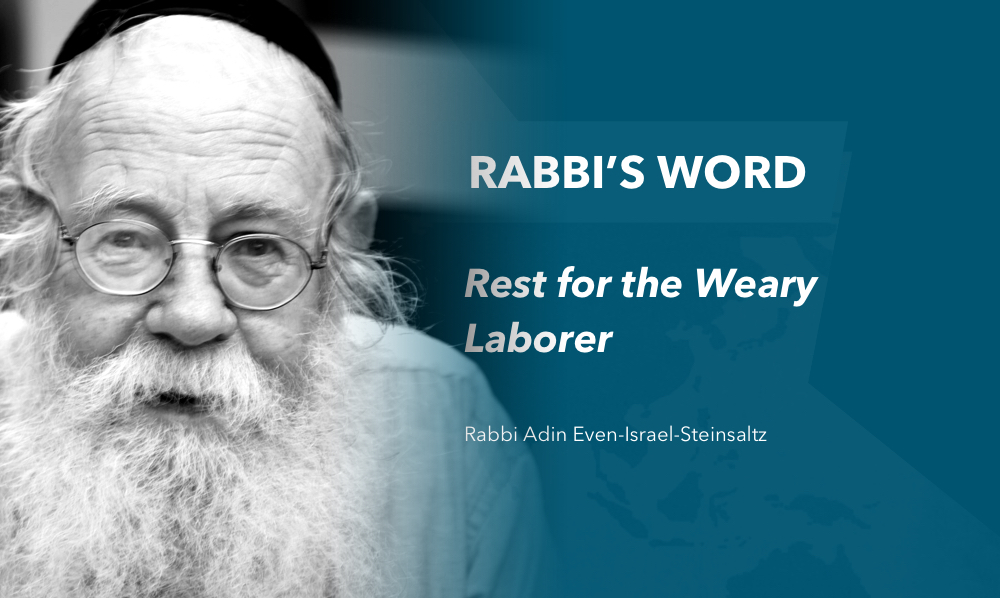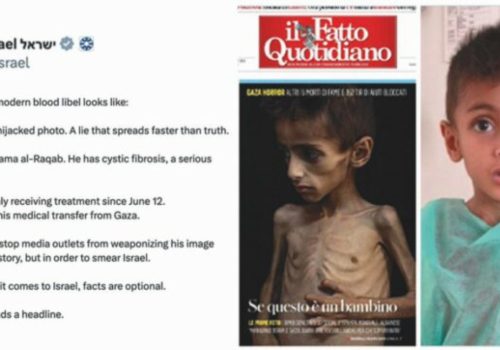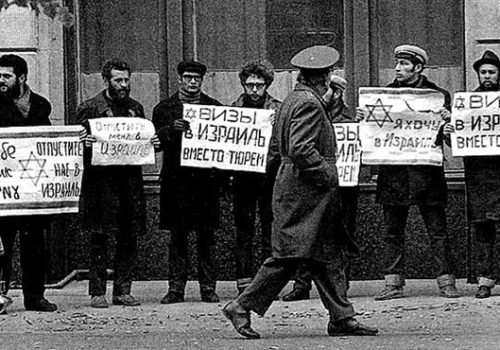
The start of a new year is universally seen as a good time to step back and look at our lives: for some people, that may mean making (the same) resolutions every January. For Jews, the process extends over a longer period, beginning on the first day of the month of Elul (in August) and extending through Rosh Hashanah and Yom Kippur.
The idea of fall as the start of a year is actually almost universal — a relic of our many years in school and starting a new grade every September. In America, it is also reinforced by the celebration of Labor Day on the first Monday in September.
What is it that we mean when we talk about “labor”? When we speak about childbirth, its meaning is very clear. Its more common use, however, is connected to work.
We might define “labor” by the amount of effort one puts in, or more precisely, by the amount of sweat that is produced. Or, labor might be something we measure economically: by how much one is paid, and in what form that payment is given. Both approaches are valid and true: The first applies even to horses; the second is exclusively a human idea.
There is still another way to think about labor, related to neither effort nor pay, but rather, to the result or outcome that is produced.
This sense of labor — as a creative process — is what the Bible means when it says that God “worked” for six days in creating the world. This labor is not tied to tiredness or to reward; it is activity that causes something new to appear.
This perspective can also be applied to the way that we live and understand our lives as productive beings. We should measure the result of a day of work by the criterion by which God evaluated His work: by what has been accomplished.
We do not always perceive this because we think that creating is an activity confined to artists and other “creative” types. Not everyone can produce works of special merit, yet surely everyone can be creative. We can all take simple things and make them better in some way. Even simple, mundane activities are creative in the way that creation itself is, because they move us away from entropy. There is, then, no essential difference between the writer who arranges a few dozen words into a poem and the baker who turns flour and water and eggs into a loaf of bread.
In a very important way, all of life is a constant struggle against destruction, against the wear and tear of matter and material. Looking at it from this point of view, labor — in and of itself — has a glorious quality. Considerations of utility, beauty, and endurance are admirable, but the basic value of labor is not measured by the quality of the result. It doesn’t really matter what kind of a creative work it is: an achievement praised in newspapers or a tiresome job done by a laborer; what is important is the fact that a human being is able to make something better than it was before.
Sometimes, it is necessary to remove things — even to destroy or fight against things — in order to accomplish an ultimately creative goal. Even at the simplest cellular level, there is a continuous interweaving of building and destruction, in the service of creation. We only know whether a particular achievement is creative or destructive when we look at the bigger picture.
It is hard to appreciate labor as an almost Divine manifestation when we are working very hard, so immersed in the work that we don’t remember what we do or why. Part of the purpose of a holiday is to have time for respite, not in order to flee from labor, but in order to be able to gain perspective — to think about what we do and why we do it.
The Jewish calendar commands that we do this every week. For six days, we are creative and productive, perfecting the world physically (through work) and spiritually (through the performance of mitzvot — obligations or good deeds). When Shabbat comes, we stop our frenzied activity, and neither create nor destroy. We may exhaust ourselves lifting furniture all day, but we may not lift a switch to turn on a light even once. From sundown to sundown, we pull back from our mastery and perfection of the world. And in the stillness of our surrender, we try to observe the world from a perspective that is closer to that of the Creator.
The bad luck of the ant is not that it works so hard, but that it hasn’t the time or the intelligence to appreciate its work. Man has the advantage of being able to give himself a day off or a week or even a month — not because doing nothing is important, but because he needs to stop and look around in order to understand where he is in the big picture and where he should be.

